[ad_1]
Some people are more authoritarian in their approach to raising children. While it has its upsides, it can be stifling if the parents remain controlling even when their kids are already full-grown adults.
In this story, a man of Asian descent living abroad was hosting his parents, who wanted to experience life outside their home country. However, his gamer lifestyle didn’t sit well with his mother and father, as they hounded him to socialize more.
Their badgering created a tension-filled environment, urging the author to comply maliciously and ultimately regain his peace.
Authoritarian parenting can come off as controlling when dealing with adult children

Image credits: Anurag Sharma / pexels (not the actual photo)
A couple was staying in their son’s place abroad, and they weren’t pleased to find out that he spent hours playing video games
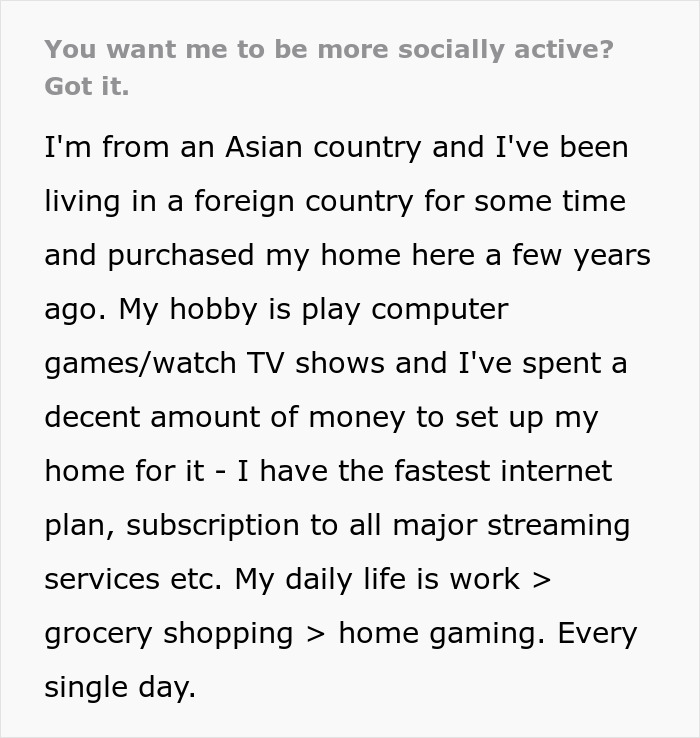
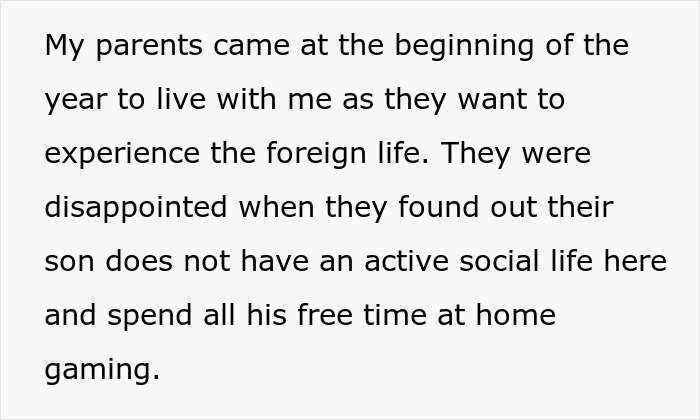

Image credits: Yan Krukau / pexels (not the actual photo)
They pushed him to socialize, and it began to create tension

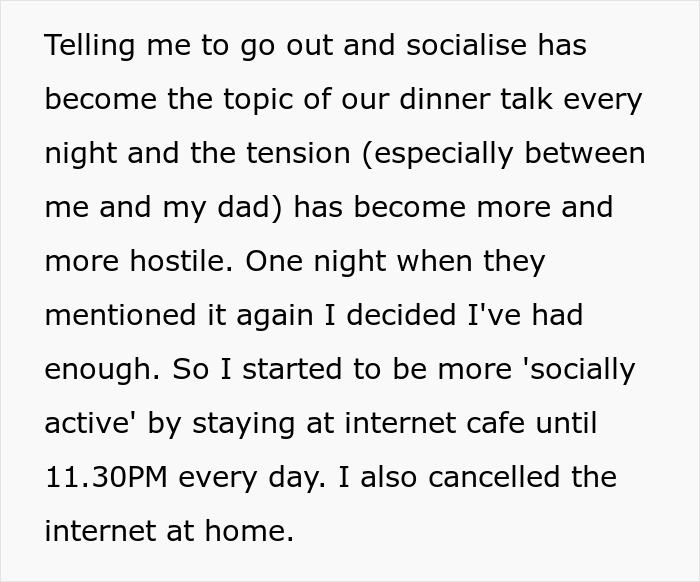

Image credits: RDNE Stock project / pexels (not the actual photo)
He maliciously complied, which ultimately drove his parents to leave
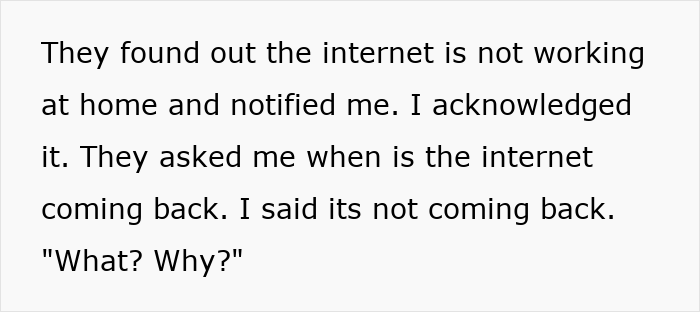
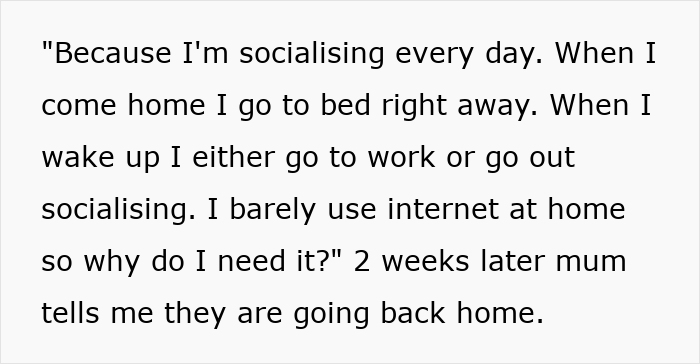
Image credits: sdvb
Asian parents are notorious for being strict authoritarians
The author’s mother and father embody the reputation of Asian parents as authoritarians. According to Psych Central, these strict traditions are mostly rooted in philosophical beliefs known as filial piety.
This philosophy states that children will have a lifelong debt to their parents and must show unhesitating obedience. In turn, it created a stereotype known as “tiger parenting,” a disciplinarian approach that experts deem excessively controlling.
However, experts agree that tiger parenting and the authoritarian approach do more harm than good. According to University of Illinois psychologist Dr. Eva Maria Pomerantz, this style could cause heavy struggles for the child.
“Those kids have emotional problems like depression and anxiety and are overall less happy,” Dr. Pomerantz told LiveScience in an interview.
Many kids raised in Asian households have recently spoken up about their experiences and feeling the effects on their mental health. Some blame the strict parenting they went through for their awkwardness and lonely feelings.
The author likely felt controlled by his parents in his own home, which didn’t sit well with him.

Image credits: RDNE Stock project / pexels (not the actual photo)
Creating distance may be necessary to deal with controlling parents
Criticizing a child’s choices as they try to make it independently is a sign of controlling behavior, according to clinical psychologist Dr. Shefali Tsabary.
In an interview with Mind Body Green, she noted that parents usually won’t hold back when they are displeased. They may also lack an appreciation for their child’s individuality and autonomy.
In such cases, boundaries are necessary; according to Dr. Tsabary, they should be strong, firm, and consistent.
“(This is) exactly what the child needs to do in order to break free from this dysfunctional pattern,” she said.
However, establishing boundaries doesn’t always work, especially with filial piety. If the situation comes to this, Dr. Tsabary suggests creating space. She notes it may be time to create emotional distance “in another way.”
The author did this through his malicious compliance, which drove his parents to go back home. While they may have meant well, they also stepped on their son’s attempt at independence and living his life, which he didn’t appreciate.

Image credits: Studio 31 / pexels (not the actual photo)
Many readers supported the author’s malicious compliance

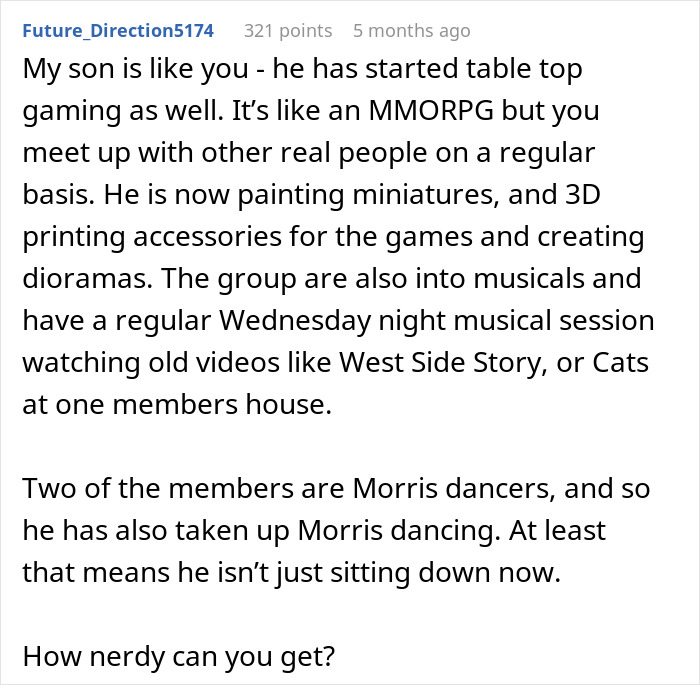

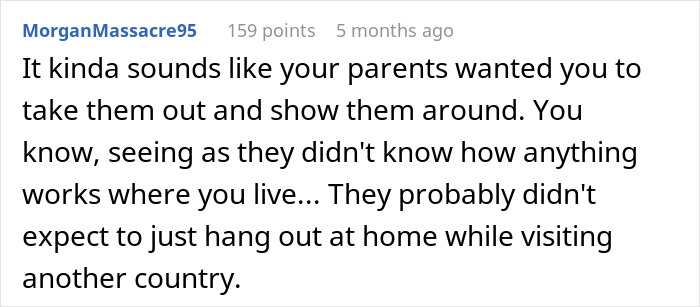

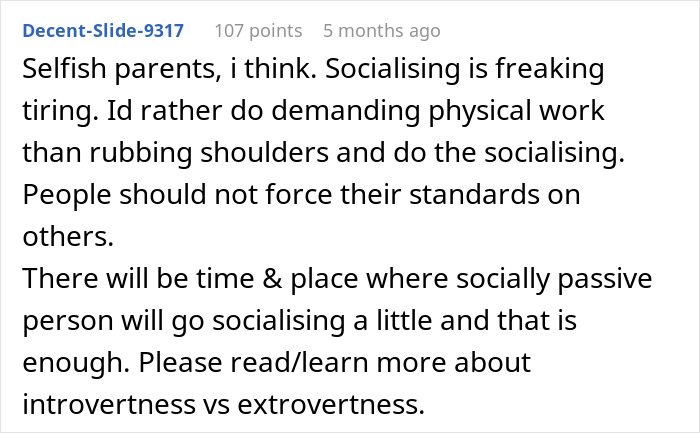
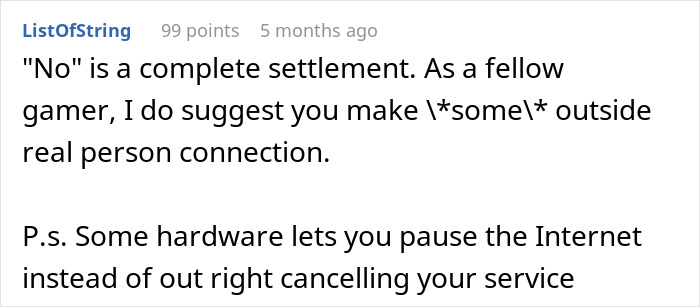
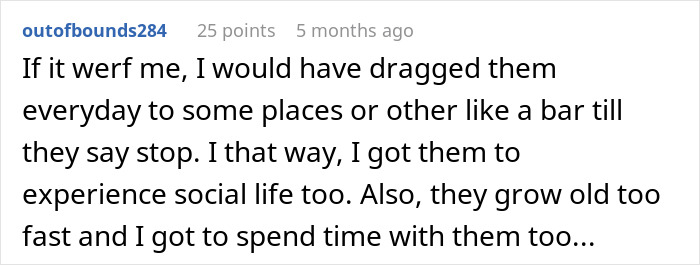






However, some didn’t agree with what he did and felt sad for him

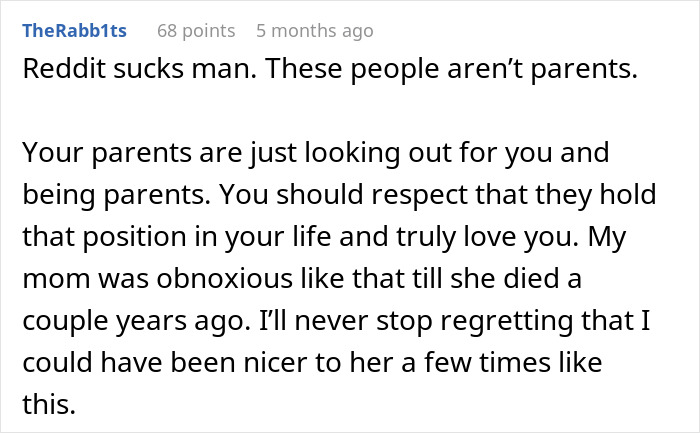
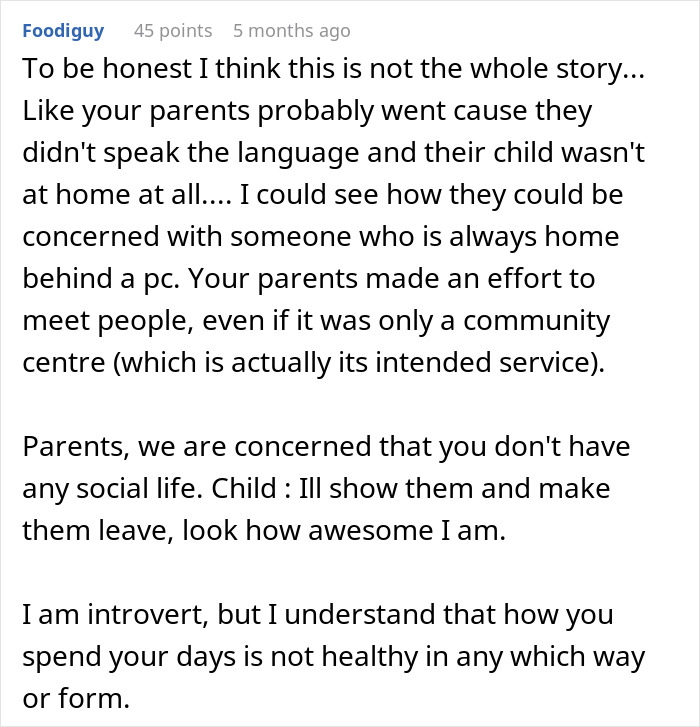

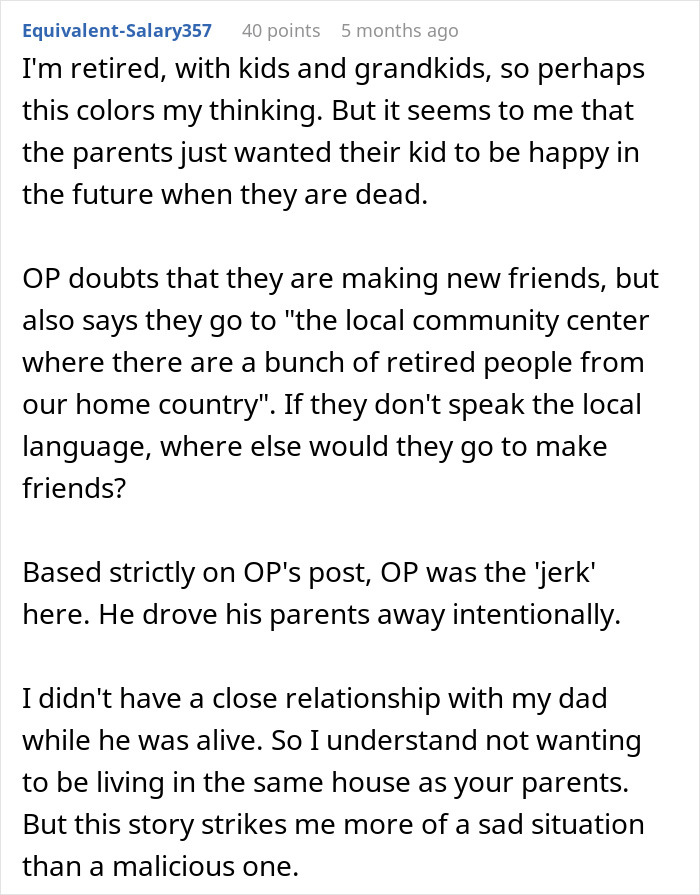
The post “You Want Me To Be More Socially Active? Got It” first appeared on Bored Panda.
[ad_2]
Source link
























